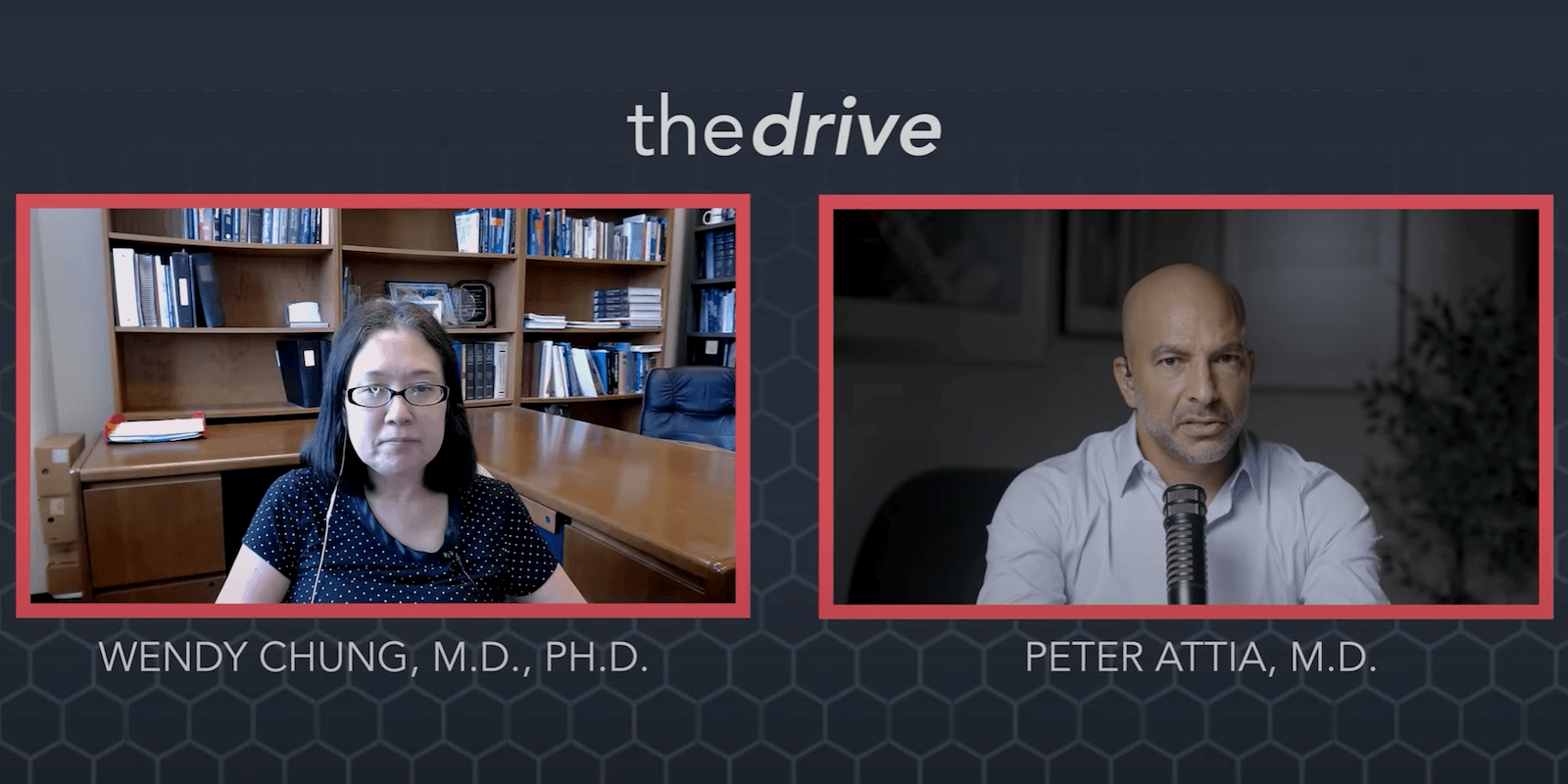Subscribe on: APPLE PODCASTS | RSS | GOOGLE | OVERCAST | STITCHER
We discuss:
Sign up to receive Peter’s expertise in your inbox
Sign up to receive the 5 tactics in my Longevity Toolkit, followed by non-lame, weekly emails on the latest strategies and tactics for increasing your lifespan, healthspan, and well-being (plus new podcast announcements).
-
-
Hidden
-
This field is for validation purposes and should be left unchanged.
Wendy’s interest in genetics and work as a physician-scientist [2:45]
You’re both an MD and a PhD, how do you balance your time between the lab and clinical practice?
Wendy’s education
Did you do a combined MD-PhD or MSTP program?
You did your PhD first and then went to medical school
What drew you to your current field of genetics? How would you describe to somebody what it is you do in the lab?
“I couldn’t really think about the science without thinking about the patients, and I couldn’t move forward and fill the gaps in our knowledge for patients unless I did the science.”‒ Wendy Chung
The genetics of phenylketonuria (PKU), a rare inherited disorder [5:15]
PKU is a good introduction to a genetic disease
Tell folks what it is and how frequently it occurs
What is the clinical manifestation of PKU?
{end of show notes preview}
Would you like access to extensive show notes and references for this podcast (and more)?
Check out this post to see an example of what the substantial show notes look like. Become a member today to get access.
Wendy Chung, M.D., Ph.D.
Wendy Chung earned her BA in biochemistry and economics at Cornell University. She then entered a MD-PhD program where she earned her PhD from Rockefeller University and her MD from Cornell University. She was a graduate student of Dr. Rudy Leibel. She completed an internship, residency, and fellowship at the Columbia University Medical School, New York-Presbyterian Hospital. Her residency focused on pediatrics, and her two fellowships focused on molecular genetics and clinical genetics. [Wikipedia]
Dr. Chung stayed at Columbia University Medical School as a Professor of Pediatrics. She was named the Kennedy Family Professor of Pediatrics (in Medicine). She served as the Chief of Clinical Genetics Division in the Department of Pediatrics, the Medical Director of Columbia’s Genetic Counseling Graduate Program, the Associate Director for Education at the Herbert Irving Comprehensive Cancer Center, and Co-Director of the Precision Medicine Resource within the Irving Institute for Clinical and Translational Research. In May of 2023, Dr. Chung accepted a position at Harvard Medical school, Boston Children’s hospital. [Columbia]
Recently Dr. Chung has been named Boston Children’s Hospital next Chief of the Department of Pediatrics. Harvard Medical School, Boston Children’s Hospital. She will also serve as the Mary Ellen Avery Professor at Harvard Medical School (HMS), and President of the Children’s Hospital Pediatric Associates. [Boston Children’s Hospital]
Dr. Chung’s research focuses on the genetic basis of a variety of human diseases such as obesity, type 2 diabetes, congenital heart disease, cardiomyopathies, arrhythmias, Long QT syndrome, pulmonary hypertension, endocrinopathies, congenital diaphragmatic hernias, cleft lip/cleft palate, seizures, intellectual disabilities, autism, inherited metabolic conditions, rare disorders, and breast and pancreatic cancer susceptibility. She also works on the implementation of genomic and precision medicine. Dr. Chung has identified over 50 new genetic conditions and has authored over 500 scientific papers.
Dr. Chung directs NIH funded research programs in human genetics of birth defects. She is the Principle Investigator of the GUARDIAN study. This is a research study that screens newborns for over 250 genetic conditions not currently included as part of standard newborn screening.
Dr. Chung is also the Principle Investigator of SPARK, a long-term autism research study. This is a study of over 100,000 people with autism and 175,000 of their family members. Over 100 genes have been linked to autism, and this study aims to better understand the genetic basis of this disease.
Dr. Chung has received numerous awards. She is a member of the National Academy of Medicine and American Association of Physicians. She was the recipient of the NY Academy of Medicine Medal for Distinguished Contributions in Biomedical Science, the Rare Impact Award from the National Organization of Rare Disorders, and the Presidential Award for Outstanding Teaching. Dr. Chung is rated one of New York Magazine’s best doctors and received the Castle Connolly Top Doctors’ award. [GUARDIAN study]
This content was originally published here.
